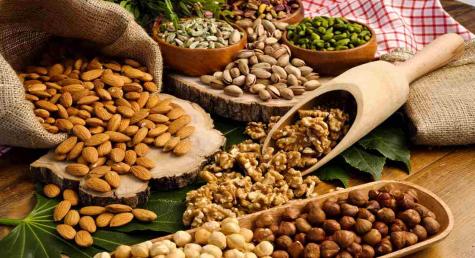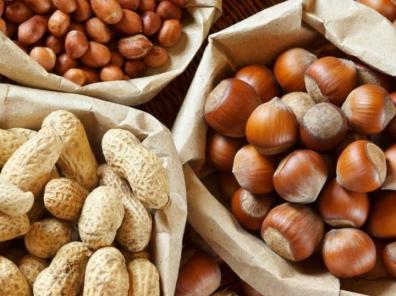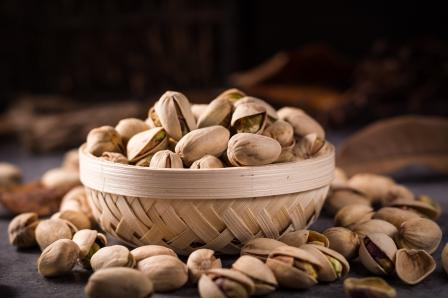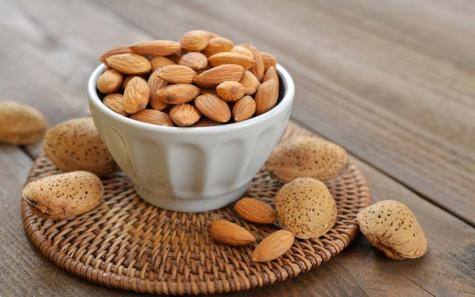Peanuts, also known as groundnuts, are the unsung heroes of the nut world. Despite being technically classified as legumes, they are commonly accepted as nuts due to their similar nutritional profiles and uses. Their versatility in culinary applications is unmatched, making them a staple in various cuisines worldwide. From snacking on roasted peanuts to using peanut butter in decadent desserts, the tasty peanut offers a delightful array of flavors and textures. Let’s delve into the fascinating world of peanuts, uncovering their nutritional benefits, culinary uses, and the intriguing journey from farm to table. **The Origin and Cultivation of Peanuts** The peanut plant, scientifically known as Arachis hypogaea, is native to South America, likely originating in Brazil or Peru. Spanish explorers introduced peanuts to Europe in the 16th century, and from there, they spread across the globe. Today, the top producers of peanuts include China, India, the United States, Nigeria, and Indonesia. Peanuts thrive in warm climates with well-drained soil, requiring a frost-free growing season of around 4 to 5 months. They are cultivated as annual plants, with the peanut pods developing underground after the flowers are pollinated.

.
The plants exhibit symbiotic relationships with nitrogen-fixing bacteria, enriching the soil and reducing the need for synthetic fertilizers. The cultivation of peanuts involves several stages, from planting the seeds to harvesting the mature pods. Farmers carefully monitor the growth of the plants, ensuring proper watering and pest control measures are in place. The harvesting process involves uprooting the peanut plants and allowing them to dry before mechanically threshing the pods to separate the nuts from the plant material. **Nutritional Value of Peanuts** Peanuts are a nutrient-dense food, packed with essential vitamins, minerals, and macronutrients. They are an excellent source of plant-based protein, making them a valuable addition to vegetarian and vegan diets. A 1-ounce (28-gram) serving of dry-roasted peanuts provides approximately: – Calories: 161 – Protein: 7 grams – Carbohydrates: 4 grams – Dietary Fiber: 2 grams – Fat: 14 grams (mainly monounsaturated and polyunsaturated fats) – Vitamin E: 21% of the Daily Value (DV) – Niacin (Vitamin B3): 19% of the DV – Folate: 10% of the DV – Magnesium: 11% of the DV – Phosphorus: 10% of the DV Peanuts are also rich in antioxidants, including resveratrol and p-coumaric acid, which have been linked to various health benefits, such as reducing inflammation and protecting against chronic diseases. The monounsaturated fats in peanuts, particularly oleic acid, contribute to heart health by lowering LDL cholesterol levels and reducing the risk of cardiovascular diseases.
..
**Health Benefits of Consuming Peanuts** Including peanuts in your diet can have a positive impact on your health in several ways. Here are some of the potential health benefits associated with consuming peanuts: 1. **Heart Health**: The monounsaturated fats, fiber, and antioxidants in peanuts can help lower the risk of heart disease by reducing bad cholesterol levels and improving blood circulation. 2. **Weight Management**: Despite being calorie-dense, peanuts are satiating and can help control appetite, leading to better weight management when eaten in moderation. 3. **Blood Sugar Control**: Peanuts have a low glycemic index, meaning they have minimal effects on blood sugar levels. This makes them a suitable snack option for individuals with diabetes or those looking to regulate blood glucose levels. 4. **Brain Function**: The high levels of niacin in peanuts contribute to brain health and cognitive function. Niacin is essential for the production of neurotransmitters that play a role in memory and concentration. 5. **Skin Health**: The vitamin E content in peanuts helps maintain healthy skin by protecting it from oxidative damage caused by free radicals. Including peanuts in your diet can contribute to a youthful and glowing complexion. 6. **Muscle Building**: Peanuts are a source of high-quality plant-based protein, making them beneficial for muscle growth and repair, especially for individuals following a vegetarian or vegan diet. It’s important to note that while peanuts offer various health benefits, they are also calorie-dense, so portion control is key, especially for individuals aiming to manage their weight.
…
**Culinary Uses of Peanuts** Peanuts are renowned for their versatility in the culinary world, lending their unique flavor and texture to a wide range of dishes. Here are some popular culinary uses of peanuts: 1. **Roasted Peanuts**: A classic snack enjoyed around the world, roasted peanuts are often seasoned with salt or spices for an extra kick. They make a nutritious and convenient snack option for on-the-go munching. 2. **Peanut Butter**: A beloved spread that transcends generations, peanut butter is a creamy and indulgent treat enjoyed on toast, sandwiches, and even in savory dishes. It can also be incorporated into smoothies and desserts for added richness. 3. **Peanut Sauce**: Used in various Asian cuisines, peanut sauce is a versatile condiment that combines peanuts with ingredients like soy sauce, garlic, and chili peppers. It adds depth of flavor to stir-fries, noodles, and satay dishes. 4. **Peanut Brittle**: A crunchy and sweet confection made by caramelizing sugar with peanuts, peanut brittle is a popular treat during festive seasons and special occasions. It offers a delightful contrast of textures and flavors. 5. **Peanut Crusted Dishes**: From peanut-crusted chicken to tofu, the combination of crunchy peanuts and tender protein creates a harmonious balance of textures and flavors. It adds a satisfying crunch to both vegetarian and non-vegetarian dishes.




Your comment submitted.